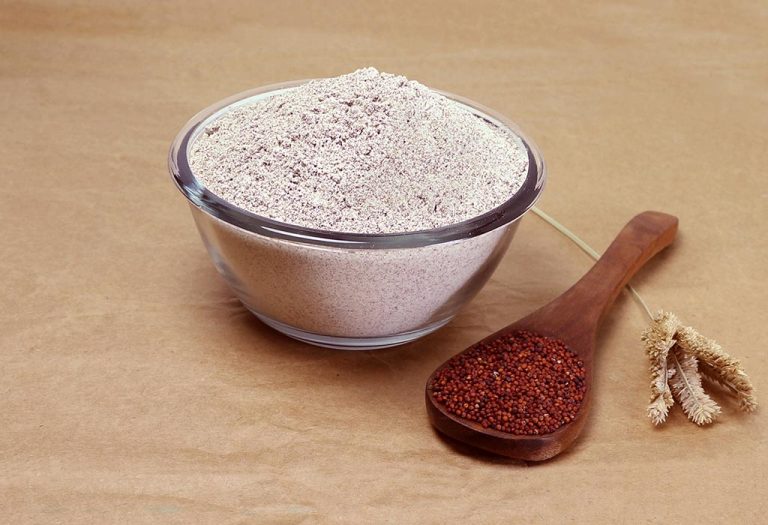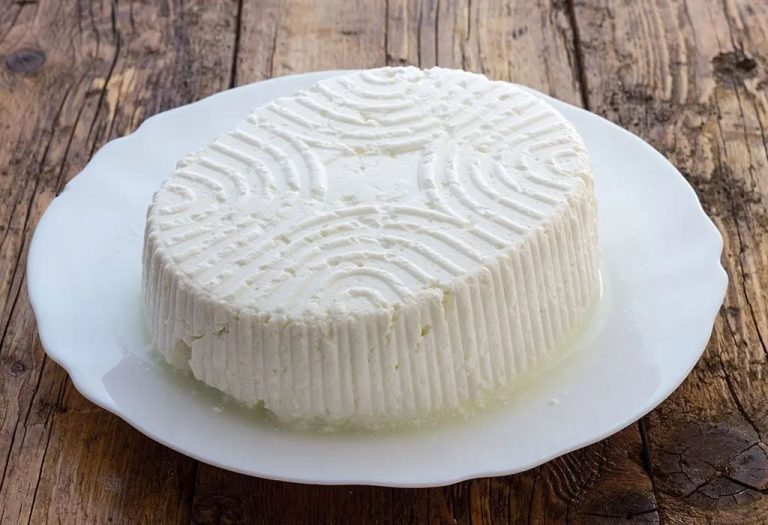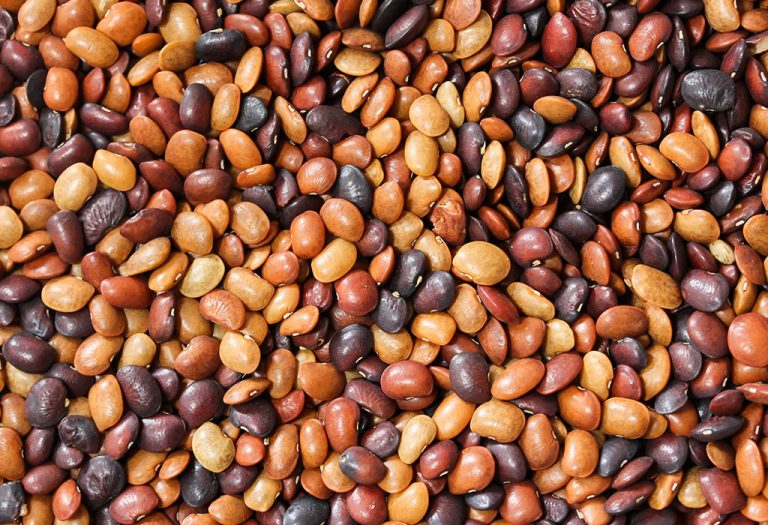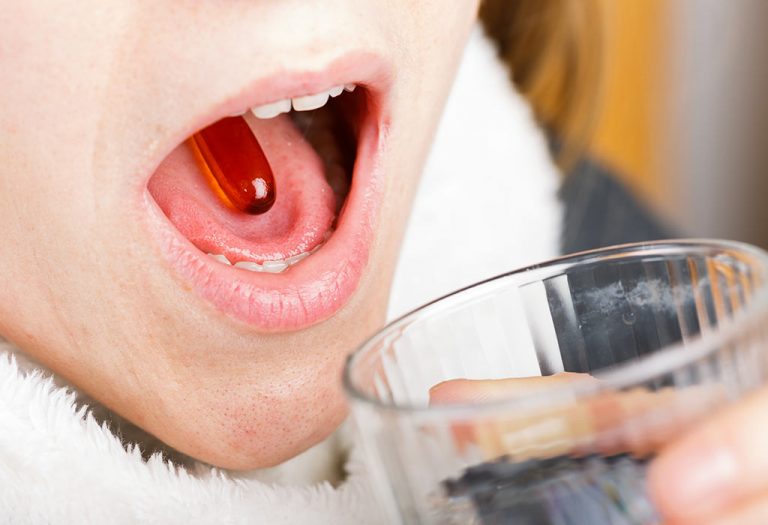Eating Goat Cheese During Pregnancy – Is It Safe?
- Can You Eat Goat Cheese When Pregnant?
- Nutritional Value of Goat Cheese
- Types of Goat Cheese That Are Safe for Consumption During Pregnancy
- Types of Goat Cheese That Are Unsafe During Pregnancy
- Benefits of Eating Pasteurized Milk Goat Cheese While Pregnant
- Tips to Eat Goat Cheese When Pregnant
- Popular Goat Cheese Dishes and Safety Tips
- How to Buy the Right Type of Goat Cheese for Pregnant Women?
- Alternatives to Goat Cheese While Pregnant
- A Word of Caution
- FAQs
When pregnant, you should be very careful with regard to your food choices. Certain foods can be good for your health during pregnancy, but then there are other foods that can be harmful. You will also learn about certain food items that may be safe for consumption under specific conditions. Today’s discussion is about goat cheese and pregnancy. In fact, eating dairy products like cheese during your pregnancy is important as they contain many vital nutrients, such as calcium, protein, phosphorus, and vitamin D, that support the baby’s overall development. So, if you love eating cheese, especially goat cheese, then you must know if it is safe to consume goat cheese during pregnancy. Let’s read to find out!
Can You Eat Goat Cheese When Pregnant?
Is goat cheese safe for pregnancy? The simple answer is ‘yes’, but there are certain types of goat cheese that should not be consumed during pregnancy. Goat cheese can be classified into three types: hard, soft, and semisoft. The hard goat cheese is generally considered safe during pregnancy. The soft cheese, on the other hand, might not be recommended during pregnancy (1). You can distinguish between hard goat cheese and soft and semi-soft goat cheese by pressing your fingers into it; soft cheese will have an indent, while hard cheese will remain as it is. When purchasing goat cheese, be sure to check the expiration date and the type of cheese. Another important point to note is that cooking kills all the harmful yeast and bacteria. Therefore, if you plan to use the goat cheese as a topping for pizza or pasta that needs to be heated, you can eat it safely.
Experts advise consuming pasteurized goat cheese during pregnancy, as unpasteurized goat cheese can carry a host of infections and illnesses.
Nutritional Value of Goat Cheese
Presented below is the nutritional value of 100 grams of hard goat cheese:
| Nutrition | Value |
| Water | 29 g |
| Energy | 452 Kcal |
| Protein | 30.5 g |
| Fat | 35.6 g |
| Total Sugars | 2.17 g |
| Calcium | 895 mg |
| Magnesium | 54 mg |
| Phosphorus | 729 mg |
| Sodium | 423 mg |
| Vitamin A | 486 µg |
| Retinol | 478 µg |
| Cholesterol | 105 mg |
Source: USDA (2)
Types of Goat Cheese That Are Safe for Consumption During Pregnancy
The following types of goat cheese are considered safe to be consumed during pregnancy as they carry a negligible risk of food poisoning.
1. Hard Goat Cheese
Hard goat cheese is made from pasteurised milk and also contains a little moisture, which makes it safe for pregnant women. Due to the moisture content in hard cheese, the harmful bacteria cannot thrive, and hence it has a very low chance of contamination. Pasteurized and unpasteurized hardbound cheese are considered safe for consumption during pregnancy (3).
2. Pasteurized Goat Cheese
Pasteurized cheese of any variety is considered safe during pregnancy, except for those that are ripened on the surface. The process of destroying the bacteria, yeast, and mould found in raw milk is termed pasteurization (4).
3. Cheese Made From Sheep’s Milk
Varieties of cheese like feta and halloumi, which are made from sheep’s milk, are considered safe during pregnancy. This is mainly because of the way they are made. Feta cheese comes with high salt content, and halloumi cheese has a semi-hard, brined consistency, which makes it safe for pregnancy, as bacterial contamination is less likely to happen in this variety.
Experts at the Centers for Disease Control (CDC) advise ensuring the cheese has been properly cooked until it reaches a temperature of 165°F (74°C).
Types of Goat Cheese That Are Unsafe During Pregnancy
Some varieties of goat cheese are best avoided during pregnancy as they can cause food poisoning. Avoid eating the following types of goat cheese when pregnant.
- Soft cheese made from raw and unpasteurized milk is mostly considered unsafe during pregnancy, as it has a higher risk of bacterial contamination (5).
- White rind cheese, which is a variety of soft goat’s cheese commonly known as chevre, is considered unsafe during pregnancy. Chevre is a variety of goat’s cheese that is mould-ripened and is similar to brie and camembert cheese, which can cause listeriosis.
- In fact, all types of cheese with a ripened surface or mould-ripened are considered harmful during pregnancy.
- Listeriosis is the biggest danger of eating raw milk goat cheese, caused by the Listeria monocytogenes bacteria. It can cause mild flu-like symptoms along with fever and may lead to blood infection and meningitis. It can also impact babies for the long term with issues, such as intellectual disability, seizures, blindness, paralysis, and even death in newborns (6).
Benefits of Eating Pasteurized Milk Goat Cheese While Pregnant
Eating goat cheese is not bad during pregnancy if you eat the safe goat cheese. Take a look at some of the benefits of consuming safe cheese during pregnancy that is made of pasteurised goat milk.
- It is a rich source of dairy and excellent for strong bone formation.
- The omega-3 and conjugated linolenic acid (CLA) content in goat cheese is known to improve the inflammatory status of individuals at risk for cardiovascular diseases, promote growth, and prevent disease (7).
- The fat content in the goat cheese is quite different from that of other varieties of cheese. This fat is stored slowly by the body, so it does not cause instant weight gain.
- Goat cheese is easier to digest than other regular cheeses. It can even help you deal with nausea and vomiting.
- Goat cheese contains a significant amount of many minerals like calcium, magnesium, potassium, zinc, phosphorous, selenium, copper, and iron, which are extremely beneficial during pregnancy.
- Goat cheese has a high protein content, which is very good for developing a baby.
- It also contains various types of healthy fats, including short-chain fats, medium-chain fatty acids, monounsaturated fats, polyunsaturated fats, and medium-chain triglycerides, as well as essential amino acids.
- It helps maintain gut health.
- Goat milk proteins are known to be less allergenic than cow milk proteins, making them a great alternative for people with cow’s milk sensitivities or allergies (8).
- The lactose content in goat milk is less than that of other animal milk varieties. In fact, goat milk has a healing effect on cow milk allergies (9).
- It is also rich in several antioxidants that help fight free radicals and maintain a healthy heart.

Tips to Eat Goat Cheese When Pregnant
Follow these tips when eating goat cheese when pregnant:
- You can bake or deep-fry some unsafe varieties of cheese, such as brie, blue cheese, soft cheese, etc., to make them safe for consumption.
- Cheese added as a topping to pizza is considered safe to consume during pregnancy, only if it is heated at a high temperature and it’s not just warm. Since pizza comes piping hot from the oven, it is considered safe to consume during pregnancy.
- If you want to eat goat cheese, select the safe type of goat cheese and eat it in grilled form. You can eat a grilled cheese sandwich once in a while during pregnancy.
If you are confused about the safety of any particular cheese you wish to eat, simply heat it, and it can be consumed safely!
Popular Goat Cheese Dishes and Safety Tips
Now that you have read about the plethora of benefits of goat cheese, let’s look at dishes you can make and eat using goat cheese while pregnant.
1. Baked Goat Cheese
It is safe to consume baked goat cheese as it gets sufficiently heated in the oven to be steamed through. So, ensure the cheese is heated until it’s hot and not just warm.
2. Deep-Fried Goat Cheese
The high temperatures of the oil are used for frying it deep-fried goat cheese, so it is safe to be consumed.
3. Crumbled Goat Cheese
It is safe to eat crumbled goat cheese as it is made using hard goat cheese or goat cheese with no soft rind.
4. Goat Cheese on Pizza
It’s safe to eat goat cheese on a pizza as it has been heated to a high enough temperature to kill any harmful bacteria.
5. Feta Made With Goat Cheese
It is safe to eat feta cheese made with goat’s milk which has been pasteurized.
6. Goat Cheese in Tarts or Quiches
If you are baking tarts and quiches in the oven, it is totally safe to eat them.
7. Goat Cheese in Pasta or Ravioli
Yes, you can eat goat cheese in pasta or ravioli, as soft and pasteurized goat cheese is usually used in these dishes.
8. Grilled Goat Cheese
If you are cooked the grilled goat cheese till it’s steaming hot, it is safe to eat.
How to Buy the Right Type of Goat Cheese for Pregnant Women?
If you want to eat goat cheese during pregnancy, you must buy hard goat cheese. While going shopping in the supermarket, you can check the label to see whether it is safe to be consumed or not by checking the ingredients. If it says prepared from raw milk or ‘au lait cru’, then it is not safe for you to consume. However, if it says made from ‘pasteurized milk’, you may go for it. If you buy cheese from a local cheese farmer, then you can always enquire about the milk used to prepare the cheese and purchase accordingly.
Alternatives to Goat Cheese While Pregnant
Sure, goat cheese has several health benefits, but if it is unavailable to you or you are currently averse to its taste or smell due to pregnancy, you can try these pregnancy-safe alternatives:
- Pasteurised Cottage cheese – an excellent calcium and protein source
- Pasteurised Feta cheese – lower fat content; has a tangy flavour
- Pasteurised Ricotta cheese – creamy texture; rich calcium source
- Pasteurised Greek yoghurt – excellent protein and probiotic source
- Pasteurised Mozzarella – perfect for baked goods; mild taste
Note: It is advised that you consume only pasteurised dairy products during pregnancy, as unpasteurised ones carry the risk of several illnesses.
A Word of Caution
In case you accidentally consume goat cheese during pregnancy, whether the safe type or unsafe, and you experience symptoms of diarrhoea, vomiting, or food poisoning, without delay, you must consult your midwife or doctor.
When pregnant, you must be very careful about your diet. If you wish to eat goat cheese or any other food that is not deemed safe for pregnant women, check with your doctor or a dietician before including anything new in your diet. Make careful choices, eat well, and have a healthy and happy pregnancy!
FAQs
1. Can I eat goat cheese during the first trimester of pregnancy?
Yes, you can eat goat cheese in your first trimester of pregnancy only if the cheese is made from pasteurised milk. Pasteurization is an important process of killing the harmful bacteria and making it safe for consumption. In fact, pasteurised goat cheese is safe to consume in all trimesters of pregnancies.
2. Is cooked and baked goat cheese safe during pregnancy?
Yes, it is safe to eat cooked and baked goat cheese during pregnancy, as thorough cooking or baking kills harmful bacteria in it, and it becomes safe to consume.
3. Can you have goat cheese while breastfeeding?
Yes, goat cheese is considered safe to be eaten while breastfeeding.
4. What types of goat cheese are safe for consumption during pregnancy?
Pasteurized goat cheeses, such as feta, gouda, and chèvre, are great options to try during pregnancy. Make sure to check the cheese for pasteurization, and avoid those with a mouldy rind (such as brie and camembert-style goat cheese), as they are unsafe.
Also Read:
Feta Cheese during Pregnancy
Eating Blue Cheese while Pregnant
Eating Ricotta Cheese in Pregnancy
Consuming Cheese During Pregnancy
Is It Safe to Eat Paneer During Pregnancy
Is it Safe to Eat Brie Cheese in Pregnancy
Was This Article Helpful?
Parenting is a huge responsibility, for you as a caregiver, but also for us as a parenting content platform. We understand that and take our responsibility of creating credible content seriously. FirstCry Parenting articles are written and published only after extensive research using factually sound references to deliver quality content that is accurate, validated by experts, and completely reliable. To understand how we go about creating content that is credible, read our editorial policy here.
1. PubMed Central – Listeriosis in Pregnancy: Diagnosis, Treatment, and Prevention
2. USDA – Cheese, goat, hard type
3. PubMed Central – Food-borne illnesses during pregnancy
4. PubMed Central – Raw Milk Consumption
5. PubMed Central – Cheese Microbial Risk Assessments — A Review
6. ACOG – Listeria and Pregnancy
8. PubMed Central – Exploring the health benefits and functional properties of goat milk proteins



































